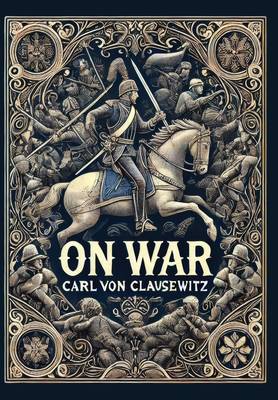
- Retrait gratuit dans votre magasin Club
- 7.000.000 titres dans notre catalogue
- Payer en toute sécurité
- Toujours un magasin près de chez vous
- Retrait gratuit dans votre magasin Club
- 7.000.0000 titres dans notre catalogue
- Payer en toute sécurité
- Toujours un magasin près de chez vous
On War (Collector's Edition) (Laminated Hardback with Jacket)
Carl Von ClausewitzDescription
On War by Carl von Clausewitz is a foundational treatise on military theory that delves deeply into the nature, strategy, and philosophy of warfare. Written in the early 19th century, this influential work explores the complex relationship between war, politics, and human nature. Clausewitz introduces the famous idea that "war is a continuation of politics by other means," framing war as a tool used by states to achieve political objectives. Additionally, he examines the uncertainty and chaos inherent in war, often referred to as the "fog of war," which complicates planning and decision-making in combat.
On War has become a cornerstone of military strategy and theory, widely studied by modern military leaders and strategists. Clausewitz's "trinity" concept, which emphasizes the roles of the government, military, and people, provides a framework for understanding how these elements interact in the context of warfare. His insights remain relevant today, offering timeless principles that are applied to both traditional and unconventional forms of warfare. The treatise's analytical depth and philosophical approach make it an enduring classic in the study of military and political strategy.
Spécifications
Parties prenantes
- Auteur(s) :
- Editeur:
Contenu
- Nombre de pages :
- 712
- Langue:
- Anglais
Caractéristiques
- EAN:
- 9781998621552
- Date de parution :
- 26-11-24
- Format:
- Livre relié
- Format numérique:
- Genaaid
- Dimensions :
- 152 mm x 229 mm
- Poids :
- 1206 g

Les avis
Nous publions uniquement les avis qui respectent les conditions requises. Consultez nos conditions pour les avis.






